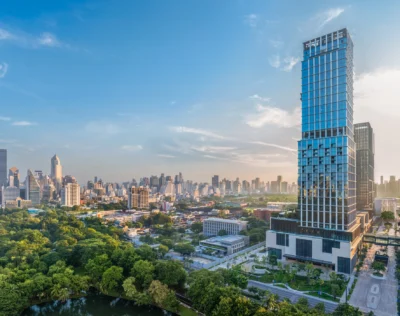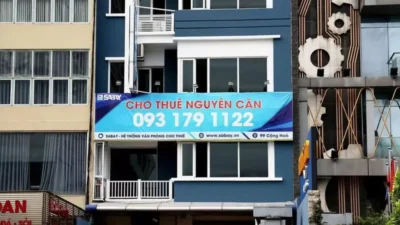Battle of the bases as Thailand and Indonesia calls on digital nomads
Southeast Asian countries like Thailand and Indonesia are introducing new long-stay visas as they compete for the increasingly valuable digital nomad demographic

The global pandemic spurred a rapid and substantial shift in working practices, as millions worldwide began working from home. Technological advances already allowed people with jobs not tied to a specific location to work remotely, mainly in high-income countries with robust technological infrastructure.
But the widespread adoption of social distancing and lockdown measures, starting in early 2020, accelerated the trend, sparking a surge in the number of international digital nomads.
From Argentina to Croatia to the United Arab Emirates, more than 25 countries and territories currently offer remote work or digital nomad visas. They usually admit foreign nationals working independently or for an employer outside the country, allowing them to enter, stay, and work remotely for a defined period. Most schemes last for one year with an option to renew. But few are as generous as Indonesia’s slated Digital Nomad Visa.
According to Tourism Minister Sandiaga Uno, it will be valid for five years—making it the longest such visa in the world—and permits remote workers to live in the country tax-free, if their income derives from businesses based outside of Indonesia.
Guidelines on the application process have yet to be announced. Still, analysts expect the visa to be an immediate success and a much-needed boost for an economy that was hit hard by the absence of tourism during the pandemic.
Given the long-term nature of the scheme, it is also expected to positively impact rental markets, particularly in Bali, which is already a favoured destination for remote workers, although current visa rules don’t legally facilitate long-term stays.
“The rental market in Bali will not only see more long-term rental agreements but also allows digital nomads to make more quality choices due to the tax incentive on their personal income,” says leading real estate consultant Marciano Birjmohun. “As there is no entry threshold, nomads with different income levels can enjoy the island, creating a broader rental market demand for different price points.”
That said, many digital nomads, especially freelancers and part-time workers, tend to lead efficient and economically sound lives. They prioritise affordable accommodation with access to high-speed tech, workspaces, and wellness amenities. Community engagement and a sense of belonging are also major drawcards.
“Although digital nomads usually travel by themselves, this doesn’t imply that they want to be by themselves,” explains Roberto Abusada, strategy and tech manager at HOMA, a Thailand-based developer focused on co-living spaces. “We’ve discovered that community is a central pillar for engagement with our company and within the nomad community. As such, we host networking events, off-site outings, movie nights, and many curated fitness options.”
HOMA is one of a growing pool of developers now catering to the nascent market. Launched in 2018, the firm’s debut property in Phuket Town features a co-working space with high-speed WiFi, individual pods and meeting rooms, a fitness centre, a kids club, and a games room. It also provides additional services for long-stay guests, such as visa application support.
HOMA is set to launch another Phuket property in the island’s Laguna district next year and one in Si Racha on the east coast of the Gulf of Thailand in late 2022. And the timing of the company’s expansion couldn’t be better.
Earlier this year, Thailand announced plans to lure wealthy foreigners to refill its coffers. The new scheme, which started taking applications on 1 September, offers work visas to foreigners across four categories. The basic requirement is at least USD1 million in assets and an annual income of USD80,000, although the rules change slightly across the groups.
Applicants for the Highly Skilled Professional category will have to work in a sector deemed essential by the Thai government, while those in the Work-From-Thailand Professionals category, aimed mainly at employees of the tech sector, must be employed by a firm with at least USD150 million in revenue over three years. Those applying for the Wealthy Global Citizens category must invest at least USD500,000 in the local economy, including bonds and property.

“We made this bet in 2018, banking on the thesis that we would have a first-mover advantage in servicing young professionals, and now have the largest digital nomad community in Phuket,” Abusada says.
So far, the response to the scheme has been lukewarm. Many analysts believe that the Thai government’s forecasts are optimistic. It expects 1 million applicants by 2027, and if each contributes USD8,000 to the local economy, the scheme will be worth USD27.6 billion, according to estimates by the Thailand Board of Investment.
In comparison, only 1,200 visas have been issued under the Smart Visa—a precursor program offering incentives to wealthy foreign investors—since its launch in February 2018.
Digital nomads have also taken advantage of Thailand’s Elite Visa in recent years, which permits stays ranging from five to 20 years. But, again, the high fees—starting from THB600,000 for five years—mean it’s off limits for many people.
“There’s too much red tape,” says Bill Barnett, hospitality, tourism, and real estate advisor and managing director of Asia-based consultancy C9 Hotelworks of the newest scheme. “I think it’s overhyped and will underdeliver on the numbers. To be successful, it has to be simpler with fewer barriers to entry.”
Only time will tell if Thailand is willing to cater to the many digital nomads who currently don’t meet the prohibitive criteria. Officials will also no doubt be keeping one eye on how Indonesia’s less byzantine-seeming attempt to accommodate remote workers once it officially launches.
But with more countries in the region and worldwide welcoming digital nomads, Thailand could soon find that the tourism and real estate sectors aren’t too happy about these missed opportunities.
“Like many other countries in the region, Thailand relies heavily on tourism. Government officials, therefore, have a responsibility to boost the economy through investment and job creation [in this sector],” Abusada says. “Making the visa acquisition process less bureaucratic and more appealing is a great way in which they can achieve both goals.
“They better get on the train.”
The original version of this article appeared in Issue No. 174 of PropertyGuru Property Report Magazine. Write to our editors at [email protected].
Recommended
Meet the expert helping overseas investors crack Australia’s property market
Ivan Lam of property advisors Charter Keck Cramer helps clients navigate Australia’s complex real estate dynamics
6 spots to check out in Singapore’s Bukit list neighbourhood
The sought-after Singapore neighbourhood offers lifestyle amenities, green space, and new residential projects
Thailand’s real estate sector watches closely as the Shinawatras return to power
Time will tell if the return to power in Thailand of the Shinawatras will lift the country’s ailing real estate sector
China’s homebuying surge: Can new stimulus measures keep the market rally alive?
Stimulus measures have sparked a surge in homebuying activity around China, but many are sceptical the shift will endure








